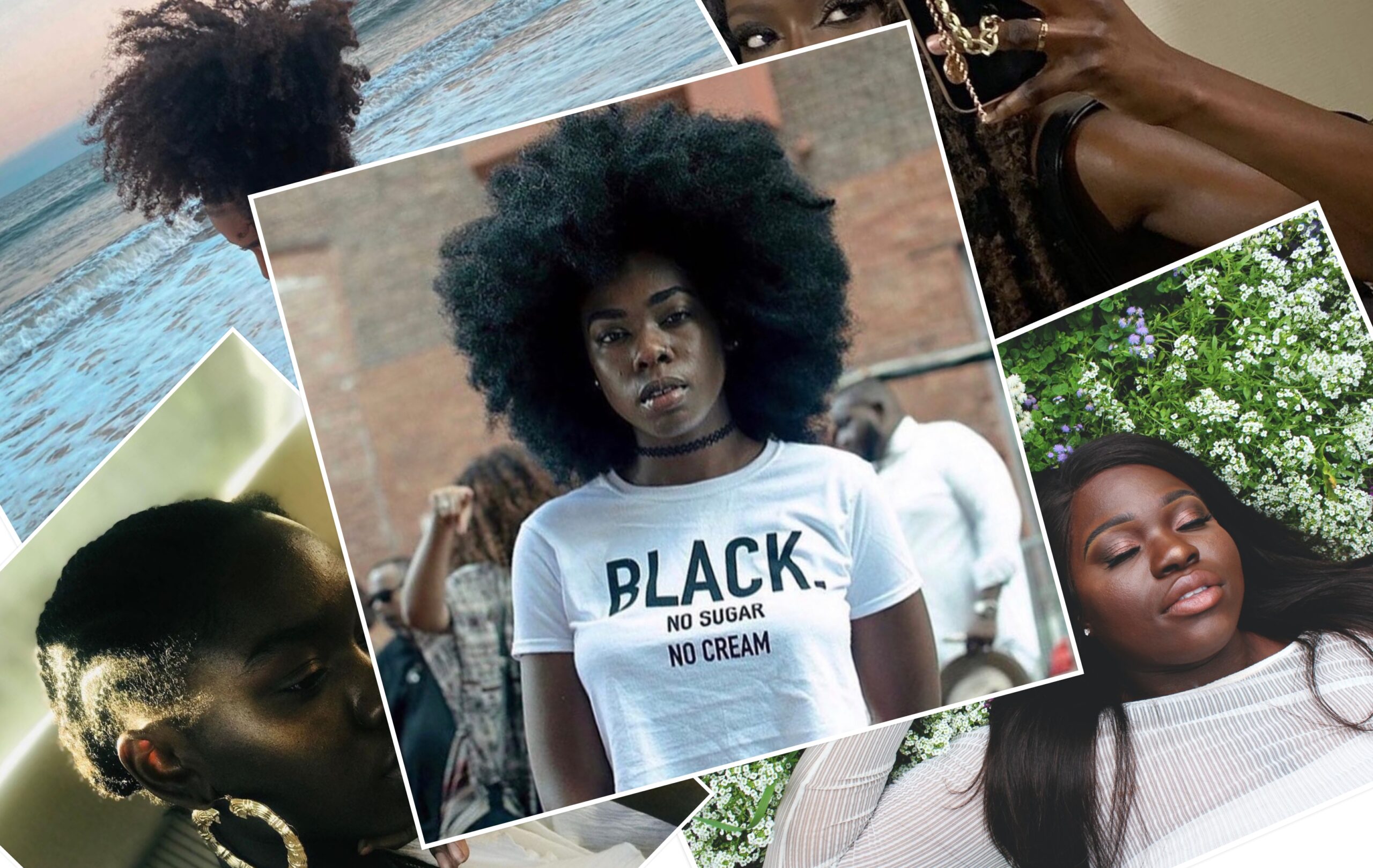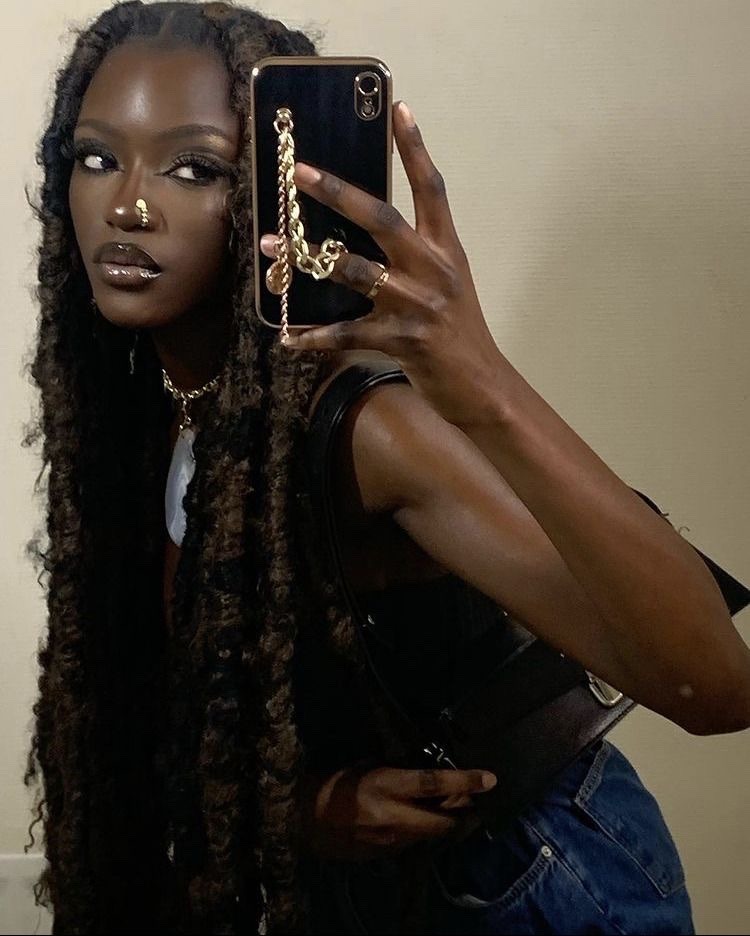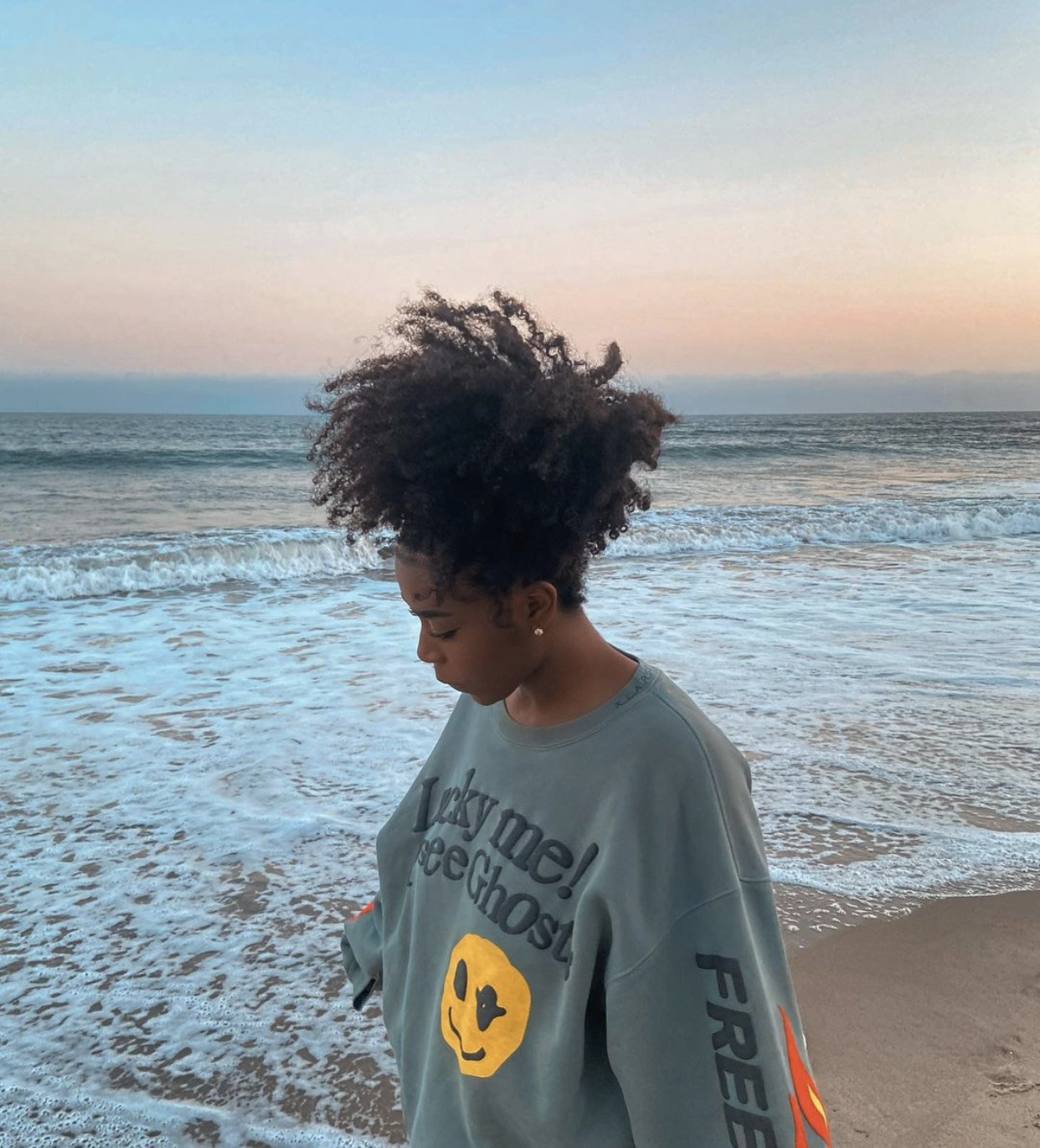Misogynoir + Beauty Standards

Misogynoir: How It Plays Within the Societal ‘Beauty Standards’
Misogyny is the dislike of, contempt for, or ingrained prejudice against women as described by Oxford Languages. Today this has translated into over-sexualization, lack of visibility, and rape culture. However, the general public’s view of misogyny is extremely whitecentered and has oftentimes left zero room for the black misogyny affected individual’s experience.
Misogynoir was coined by activist Moya Bailey and is exactly what it sounds like: misogyny directed towards black girls & women. This can be translated into hypersexualization of young black MAI (misogyny affected individuals), invalidation of feelings or reactions, a tendency to trauma dump on them due to the mammy stereotype, and masculinization amplified for dark skin MAI. Nonetheless, there are still cosmetic effects of white supremacy imposed onto black MAI. The current beauty standard is vehemently eurocentric which can be traced back to colonization and neo-colonization indoctrinated millions into the belief that your proximity to whiteness is a measure of your beauty. For example, lighter skin tones and less prominent features associated with people of color such as noses and lips are often interpreted as allure. Consequently, people on the opposite of the spectrum, with more prominent noses, lips, and darker skin tones face poorer treatment. The inverse of this (better treatment due to looks) has been noted as the term ‘Pretty Privilege’.

(Tumblr)
In the book, Belly of the Beast By Da’Shaun L Harrison, the author hypothesizes that Pretty can be used as a sort of capital for treatment. Several black MAI and darkskin MAI in particular have recalled their experiences with being treated as less than specifically by men. This issue has only been exacerbated by the fact that black men are statistically less likely to date black MAI. Why is it such a trend for black men to harp on black MAI? This question has been asked by many and unfortunately this rhetoric can be traced back to the masculinization of black MAI and the hyper-masculinization of darkskin men. Darkskin men have been hyper-masculinized since the dawn of time and the masculine association that’s attached to you while being a darkskin MAI is something that sticks with you for life and affects nearly all of your relationships, romantic or platonic. Because darkskin men are hypermasculinized it’s often hard for them to do anything that’s slightly associated with femininity such as dating someone masculine, expressing their feelings and seeking mental health treatment without having their blackness invalidated.

(Tumblr)
Obviously this rhetoric is extremely heteronormative and anti-black regardless it has seeped its way into our society. With this said, darkskin men are more likely to date lightskin MAI over darkskin MAI and will bash darkskin MAI any chance they get. Think of any heterosexual darkskin man you know and they are most likely dating someone who’s lightskin or noticeably lighter than them. This seemingly hatred-like feeling for black MAI is what fuels feelings of undesirability. Darkskin men have the tools and lexicon given to them by their internalized anti-blackness to verbalize their hatred for darkskin MAI as Oh! Stephco expertly states.
The impact of this is detrimental. When one faces as much anti-blackness as a black MAI faces, they expect some form of consoling and solidarity from people who face the same thing. Only when they seek it are they met with loads of invalidation and mocking for their traumatic experiences.
I can say that as a darkskin woman I have struggled a lot with the concept of undesirability specifically when it comes to the black male gaze. I know, with certainty, that my dark skin and my foreign ethnicity have amplified my experience. When I talk to my lightskin counterparts about their experiences with black men, I don’t feel jealousy or hatred, but wonder. Part of my experience with developing and growing has been the process of accepting that the amount of male attention I get is not reflective of my worth; however, it is a lesson that I should not have had to learn so painfully. As I start to come into myself and feel more whole, I pray that my younger selves embrace that cognizance as well.
~ Ayo Sanneh, C.O.R.E Mag teen blogger
facebook comments:

